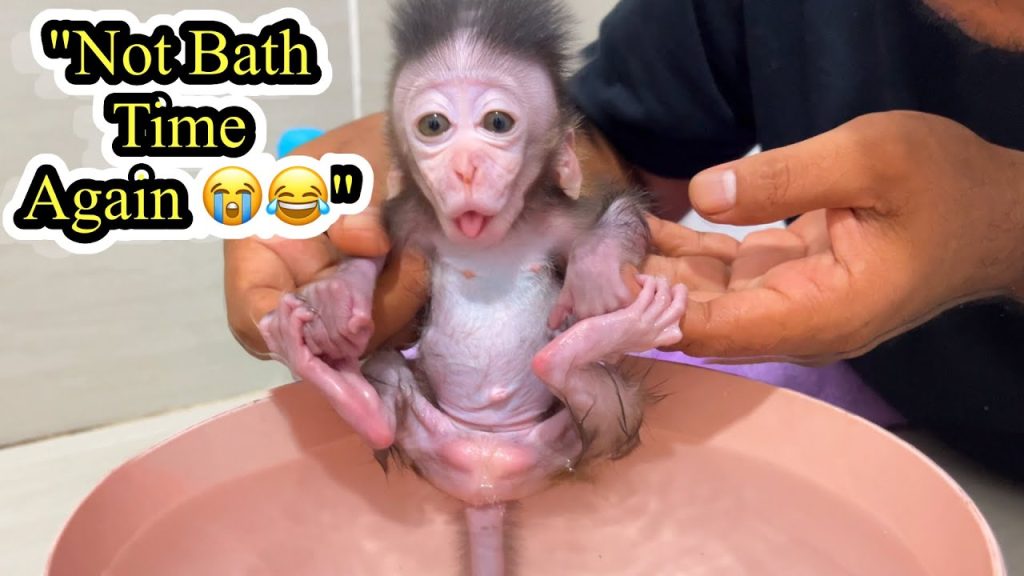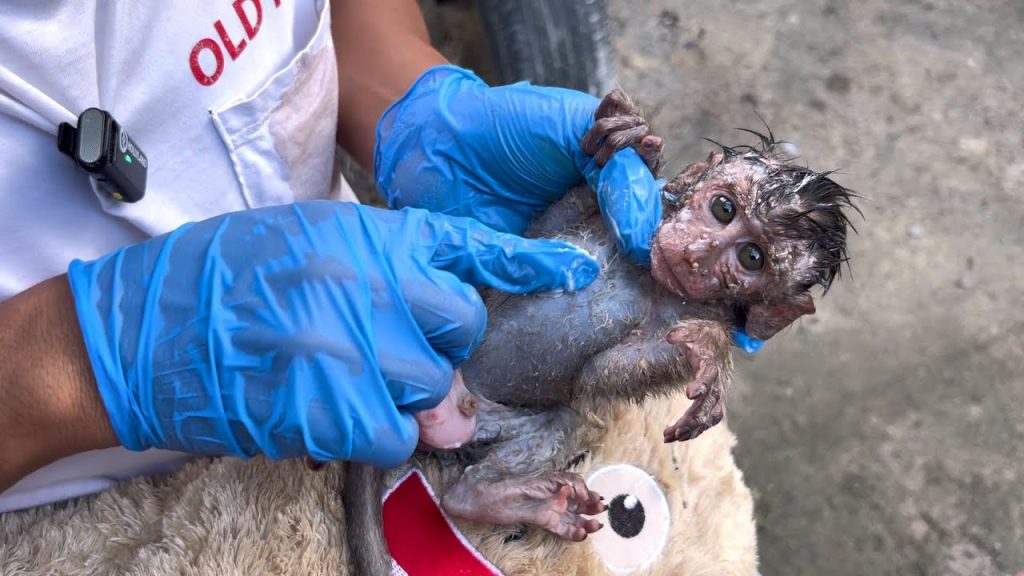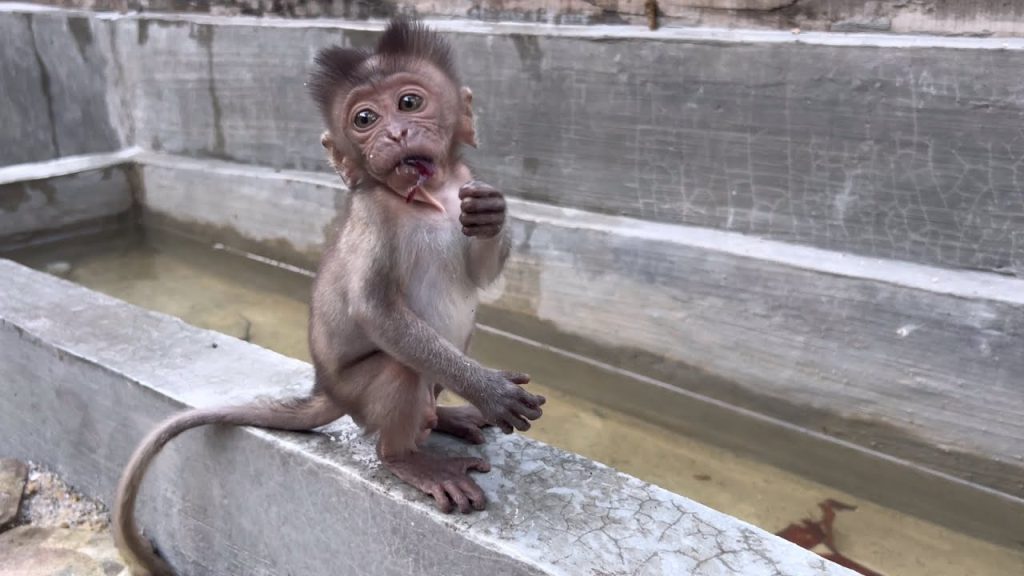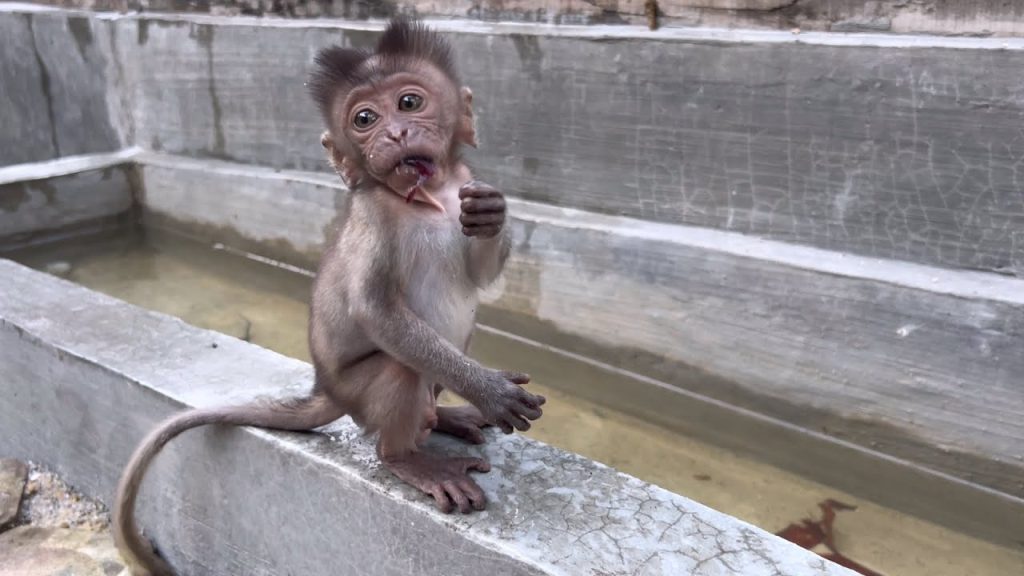
Baby monkey Yumi’s dramatic reaction to bath time is not just a “cute tantrum moment” for the camera — it is a tiny window into how young primates process surprise, temperature change, loss of control, and sudden unfamiliar sensations. When the warm fur that normally protects Yumi’s skin suddenly becomes wet and heavy, there is a moment of pure confusion. The brain of a baby monkey expects predictable textures: mother’s chest, cloth, blanket, soft shoulders, smooth bottle nipple. Water, especially running water, does not feel like any of those familiar objects. So Yumi’s face scrunches up, the body stiffens, and the eyes widen as if the entire universe has abruptly violated the rules of reality. To us it looks funny — the tiny scream, the sharp gasp, the head jerk — but to Yumi, this is a full sensory conflict. Bath time is not a routine yet; it is a shock event.
Young monkeys rely on micro-control for safety: gripping, holding, clinging. But during a bath, gravity feels slippery and unstable. The soap scent is foreign. The surface beneath the feet does not grip like bark or towel. The water temperature may be safe, but it is not expected. This is why the reaction seems so over-the-top. Yumi is, in that moment, fighting not the water itself, but the loss of orientation. Emotionally, the panic is a request: “Put me back into what I understand.”
Yet after the panic, something else happens. When the rinsing stops, when the towel arrives, when the fur becomes gently pressed and warmed again, the nervous system begins to settle. The same baby who shouted dramatically just moments before now melts into the comfort of being wrapped and dried. And this change — from chaos to calm — is the quiet miracle of early regulation learning. Each bath teaches Yumi that a strange moment can end in safety, that discomfort can end in warmth, and that trust does not break just because the body feels suddenly different. One day, bath time will not be a crisis. It will be routine. For now, it is a tiny drama — but inside that drama is the beginning of resilience.


